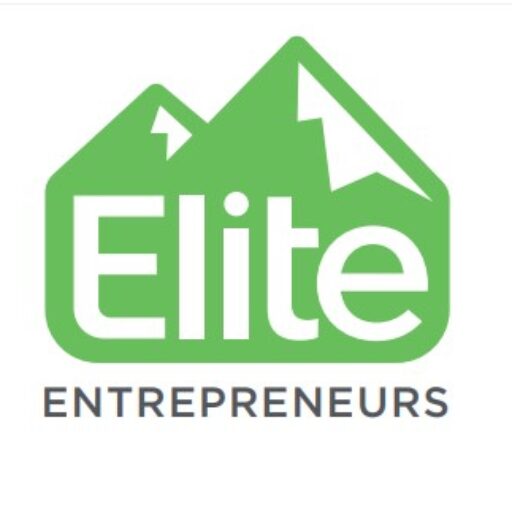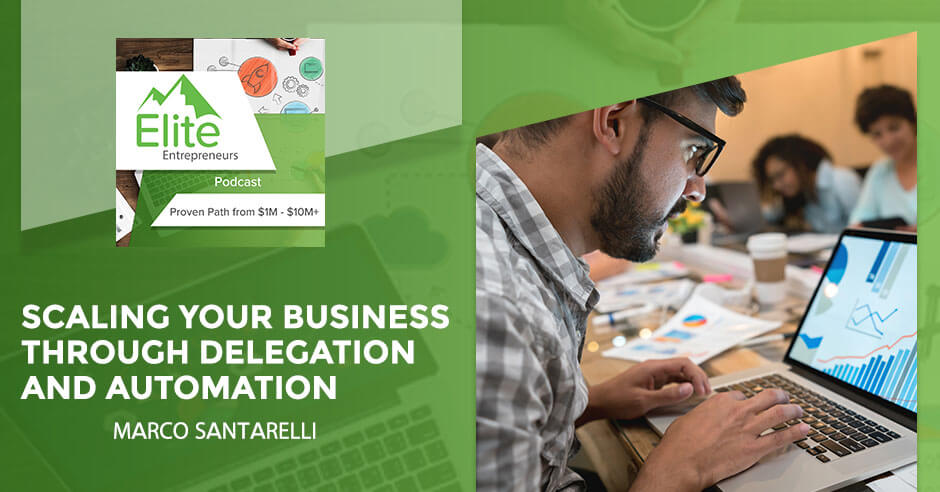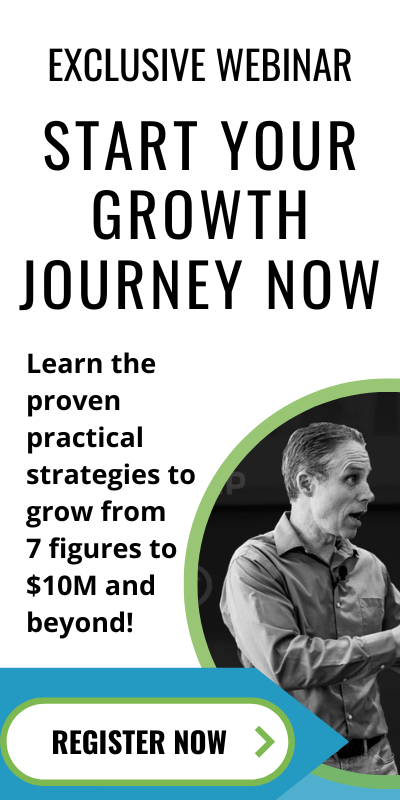Episode 23: Scaling Your Business Through Delegation And Automation, With Marco Santarelli
Marco Santarelli is an investor, author, Inc. 5000 entrepreneur, and the founder of Norada Real Estate Investments, a nationwide provider of turnkey cash-flow investment property. His mission is to help one million people create wealth and passive income and put them on the path to financial freedom with real estate. He is also the host of the top-rated podcast Passive Real Estate Investing.
What the podcast will teach you:
- Why bringing more people into your business to delegate work to is the key to growth once your concept is proven and your business is established
- Why putting the right people into the right roles and implementing systems to support your business is the key to growth
- What services Marco’s business, Norada Real Estate Investments, offers to their real estate investor clients
- What challenges and obstacles Marco faced during the process of establishing and growing his business and how he overcame those growth challenges
- Why your time as a business owner is best spent doing work that is the “highest and best use” of your time, delegating less valuable business drivers to staff
- How Marco recognized the need to hire employees and delegate work and responsibility to free him to focus on other aspects of his business
- Why bringing in someone and handing off the sales process can result in a temporary decline in sales, and why it is necessary to take the leap anyway
- How hiring an employee to handle the business’s sales allowed Marco to focus on marketing and business development
- Why you have to “get out of your own way” and learn to automate and delegate to be able to scale your business effectively
- What current challenges and opportunities Marco is working on to further grow Norada Real Estate Investments
Resources:
- Website: www.NoradaRealEstate.com
- Podcast: www.passiverealestateinvesting.com
- Facebook: www.facebook.com/NoradaRealEstateInvestments
- LinkedIn: www.linkedin.com/in/marcosantarelli
- Twitter: www.twitter.com/MarcoSantarelli
—
Welcome to this episode of the show. We spend our time and energy trying to help seven-figure business owners figure out how to grow through some of the known and predictable seven-figure growth challenges. What we have is a special guest. His name is Marco Santarelli. He is the Founder and CEO of a real estate investment company called Norada Real Estate Investments. I’m pleased to have him as our guest. Welcome, Marco. Thank you for joining us.
Thank you. I’m honored to be on your show. I’m looking forward to your questions.
For all of you reading, I found Marco in a cool way. We saw that Marco’s company had grown fast enough over the past several years to make the Inc. 5000 list. We reached out to say, “We want you to come on our show and talk about some of your experience in successfully growing your business.” Thank you for being an example to the other business owners out there who are trying to grow.
It’s my honor to be on your show. I’m looking forward to sharing what I can. It may not be much but after doing this for many years, there are probably a couple of nuggets I can share.
Let’s talk about that. It was years in the making to get to this point.
2019 was the first year that we hit the list. I honestly didn’t apply prior to that because I didn’t think I could make it. I might have made it before 2019 as well but I didn’t apply. I’m going to apply again this 2020 in the hopes of being on the next list. It seems to be progressively harder to keep hitting that list time and time again because you have to have not linear growth but almost exponential growth every time.
It is hard to keep up with that for sure. In our experience that I talk about sometimes on the show, we were fortunate enough to be able to get on that list year after year for six years. It gets progressively harder. Now you know what it takes and you’re recognized on that list, I’m confident you would have been on that list in 2019 as well. You have this thing that’s growing at a nearly exponential rate. It’s fast-moving.
We’re excited to have you on the show and get some of those lessons. Years in the making sometimes people look at you and go, “You’ve had all this success. How did you do it?” You’re like, “It’s years of hard work.” Why don’t you talk about that for a minute before we get into some of the other questions?
With business, you always have challenges. It's impossible to run a business without having challenges along the way. Share on XMost people, when they launch a business, they are a solopreneur. They’re not building a large-scale business with staff and employees unless you have partners and have to bring on staff. In my case, when I launched the business, it was me, myself and I. For many years, that’s how I built it. I was chief cook and bottle washer. I’m sure a lot of people reading this can relate to that because if you don’t have a lot of capital, you’re an under-capitalized business. You don’t have a lot to go off of and it becomes hard to scale.
Once you work the business, you prove the concept and you have a real business where you have a product or service to sell, then you can start looking at bringing on people to grow that business. I didn’t recognize that early on. I could have grown the business bigger and faster if I had known that at the time. I learned that as the years went by as I continued to build the business.
Even though that sounds like a bad thing, the flip side of that is in the process of being chief cook and bottle washer, you learn every area of the business like building the website, what content to put on there, marketing, sales, handling clients, objections, closings, putting the systems in place for us to acquire the inventory, get investors educated, bring them to contract and then to a close.
When you’re formulating all those pieces in those systems, you have something that you can delegate to someone who you bring on as a partner or a new hire. This was a long answer to your question. The thing is you start as a solopreneur and spend a lot of time, sometimes years. If you last that long to build that foundation and then the framework for your business, you have something that you can hopefully scale.
I love everything about what you shared because that is the path most of us take. We wear all the hats. We learn the ins and outs of every aspect of the business. Until you can fund that next hire, it’s all on you. Unless you have some investor money to grow your company, you have to grow it through your sales. That is the journey.
There are very predictable stages and we’ve talked about this on our show before. It’s the 1s and 3s of revenue as you get to that first $100,000. If you hadn’t already, you can quit the day job. You’re like, “I’ve earned a living,” and then you’re trying to grow to $300,000. Maybe you hire 1 or 2 people to help you get there and you’ve got to master sales.
From $300,000 to $1 million, you got to put the systems in place for consistent customer acquisition and consistent fulfillment of your product and service to have a steady operation. You crack into that million-dollar mark. Gradually, you’ve built a little team and got something that works. You’re in the business of, “How do we keep growing? How do we scale this thing?” It’s common to hear the way you described it. I love the details. Thank you. Before we get into some of the challenges that you experienced post the million-dollar mark, is there anything you want us to know about your business before we move into some of your learnings?
It might be a two-pronged answer to that because I describe it one way and then explained it differently. The best way to think of our business is we are a nationwide provider of what I call turnkey cashflowing rental properties. Our clients are people that want to build a real estate portfolio because they want to create wealth and passive income. They want someone to be their advisor and counselor and help them build a real estate portfolio.

Delegation And Automation: The only way to scale the business is to either automate or delegate the things you are doing or involved in because if you can’t, you won’t be able to scale the business.
The better answer is that we provide all the knowledge, resources and properties that anyone would need to build that real estate portfolio. We provide a lot of free content. That knowledge is content in the form of a podcast, blog articles, reports and books for free. The resources are all the team members that you would ever need to acquire funds and manage those properties.
We have 1 to 200 properties in about 20 different markets at any given time. When someone comes to us, we’re pretty quick to help them map out what their investment goals and strategy are, help them decide on a market to invest in and help them choose properties within the right neighborhoods in that market to build that portfolio. Our goal, which is our mission, is to help one million people create wealth and passive income through investment real estate so they can be financially independent or financially free.
I love that mission. It’s very specific. We’ve only met but that’s right in line with what we advocate. These generic mission statements out there don’t mean anything but when you have a target, there’s the destination we’re up to. I love that. Helping one million people grow their wealth through passive income through real estate investment is awesome. Do you put a timeframe to that or is that an open-ended goal?
I’m going to assume that the business will live on indefinitely whether I’m here or not. It’s hard to put a timeframe on something like that. At the end of the day, it doesn’t matter whether they’re doing business with us or not. The fact that I’m putting out a ton of free content in the forms of downloadable free guides, the book that is coming out which will be given away for free, the podcast which I’ve been doing for years and the blog which we’ve had for many years, all that content is helping people whether they do business with us or not.
I have people email me from time to time saying, “I want to say thank you for convincing me or helping me believe in myself, take action and start investing in real estate.” They flat out tell me, “We didn’t do any business with you yet but you’ve put me on the path that will help me and my family in the future.” That feels good. It’s like we’re having an impact on people that I have no idea who they are. I’ve never met these people but they’re reaching out saying, “Thank you for all the great information that you’re putting out.” That feels good.
That must be super gratifying. Good for you for having that impact. The million is a big number. That’s like Jim Collins’ big hairy audacious goal but you might not know how many people you’ve touched by all the things that you’re doing to share the knowledge.
You’re right. It is a big hairy audacious goal. I cannot measure or quantify how many people I’ve reached or impacted. I can easily and confidently say it’s in the thousands of people. I don’t know if it would be in the tens of thousands of people but who knows?
That’s what you’re going to be up to but I can tell you’ve got the clarity that you need to keep charging down that path. That’s cool. If people want to learn more about your business, do they go to NoradaRealEstate.com?
If you're always in a state of overwhelm, then you probably have too much on your plate. Share on XThat’s a simple answer. We have two websites. NoradaRealEstate.com is our main website and then we have a sister site for the podcast. It’s simply called PassiveRealEstateInvesting.com. That’s the name of the show.
Let’s talk about some of these lessons that you’ve been learning. You’ve been learning tons of them over the last couple of years but let’s focus on some of those 7-figure growth challenges, post to $1 million in revenue. What were some of the things maybe you realized or even been surprised about as a business owner when you hit that place? You’re still growing but some challenges have hit you. What did you experience?
With business, you always have challenges. It’s impossible to run a business without having challenges along the way. I like to say the definition of an entrepreneur is someone who can identify problems and come up with solutions for them. If you don’t have problems to solve, then you’re either not an entrepreneur or not running a business. You become successful by solving other people’s problems and the more problems you can solve for more people, the more successful you become.
If you put your business owner hat on, not thinking about the problems you’re solving for others, what were some of the problems you were dealing with as you were trying to grow?
It depends on how far back in time we go. The biggest problem that comes to mind, which seems to be always a perennial problem, is feeling overwhelmed. That’s not necessarily always a bad thing but the thing is if you are spinning too many plates in the air and taking on too much, that’s normal for an entrepreneur to do. We’re always looking for opportunities and ways to expand but if you’re always in a state of overwhelm, then you probably have too much on your plate and I feel that way often.
In building the business, I felt that was normal. I thought being in a state of overwhelm was a normal state and that’s the only way to grow. Maybe, in the beginning, that’s true but what I learned long after that and then looking back in hindsight, I realized I could’ve done things a little differently. I could’ve and should’ve brought on help, whether that’s a minority partner or a virtual assistant or hiring a support staff person, be it an executive assistant, a transaction coordinator or whatever it may be. Bringing on additional support staff to help free up your time will help you think more clearly and grow the business quicker.
If I’m stuck doing $15 an hour work, which I know how to do well, quickly and efficiently, that doesn’t mean I shouldn’t be doing it and it doesn’t mean that that’s right. What I should be focused on is $100 or $200 an hour of work that is my highest and best use. I’ll delegate that stuff to support staff or other people that can do it as well. Maybe not even as well as I can but close enough to get the job done. I can then free up my time to focus on the more valuable things, which are the things that will drive and grow the business and let go of the stuff that is not so-called beneath me but below my pay grade.
That’s a very common occurrence. When you were a chief cook and bottle water washer, you knew all of it because you had to know all of it. As the business grows, you still know all of it. Sometimes, we constrain the growth of the business by not relinquishing control of things that we could delegate to others if we brought more help. I love the way that you talked about that.

Delegation And Automation: The best way to build a business is to essentially work yourself out of the business. Replace and eliminate yourself as a critical piece. That way, the business can run and survive without you.
Since that’s such a common occurrence, how did you finally recognize that in yourself or come to grips with the fact that you could be doing something different or take that little leap where you said, “I’m done doing this mode. I am going to pay somebody to do tasks A, B and C so that I don’t do those anymore.” What changed in you to get you to do that?
There are lots of readers trying to keep it all together themselves still. You used the term overwhelm. Sometimes, we talk about them being the bottleneck or having the weight of the world on their shoulders. How do they get out of that mode, finally see in themselves the ability to break off chunks of work, give it to somebody else, let go and focus on higher-value activities?
I don’t remember specifically the event but I do remember the role and that was the sales role. There was a point in time years ago where I realized that the sales end of the business is probably the most important part because nothing happens until something is sold. Sales is critically important to the survival of a business because it’s the lifeblood and revenue but I realized that was taking up almost all of my time and I wasn’t able to focus on the other 99 parts of the business.
I became very proficient and good at sales, which is not hard selling but consultative selling. If I had someone on the phone, I can ask them the right questions to get them to think about their situation, where they need to go and bring them to the point where they’re saying, “Let’s move this forward and go to the next step. Let’s start looking at some properties and put them under contract.” I got very good at that but I realized that was taking up pretty much my whole day. It was 80% of my time.
I was good at it but I didn’t necessarily enjoy it as much as I did the other things that I’m very good at, which are marketing, business development and working on ways to scale the business. I made the decision to bring on my first salesperson, my investment counselor. It was a good move but here’s the thing. My sales did suffer. My sales dropped because they weren’t as good as I was. I had to take a step back.
In freeing up my time from that even though it was a little bit painful, I was able to create more time for me to focus on business development, marketing, growing the business and focusing on the business, not so much on the business. The sales aspect critically important is working in the business. I needed to peel myself away a little bit at a time to focus on the business itself.
You put your finger right on one of the core issues many of us have. The hesitancy to bring on somebody else and let go of a piece of critical work is the idea that it’s going to drop in the short-term, especially on the sales front. It’s so hard to consider bringing in somebody, giving them the sales thing and not being consumed with worry or anxiety about, “Are sales going to drop too far?” You’re not able to let that person run and go. You did experience a drop in sales. Was that for a quarter, a couple of quarters or a year? How long did you feel that on-ramping of somebody else taking that portion of the business?
I don’t remember but it was probably a year before there was a recovery to where I probably had it. One of the solutions there, which I don’t see talked about much at all in business books or the business area, is if you can create the systems, tools and framework for your salespeople to be as effective as you were because you’re not relying entirely on them, then it helps your business. You can carry on doing what you were doing because you’re not relying on the individual by themselves. You’ve got the systems, tools and framework in place that carry a lot of that load.
Bringing on additional support staff to help free up your time will help you think more clearly and grow the business quickly. Share on XThat’s wise. If you know the processes and the steps, you get good at it. I knew the questions to ask. I knew how to lead that prospect through a conversation that they would arrive at the idea that, “I need to move forward with this.” They were ready. The more you can deconstruct that path or that magic sauce that you figured out so that it’s portable to somebody else, maybe not to the same level of success that you were having but to a high degree that they can replicate what you’re doing, that’s a key to not feeling as much anxiety when you go let somebody else do that. You avoid having too long of a ramp for that person to get up to speed.
Those are good thoughts. Hiring your first salesperson was a big thing. What were you able to do in terms of building the business, whether that was processes, systems or whatever else you were doing on the fulfillment side. Once you got a salesperson, what did it allow you to do that enabled the business to grow?
The two things I feel that I’m pretty strong at or at least I have a good understanding of and a passion for is marketing. I like the business development side which is networking with other people in and outside the industry and building up their strategic alliances or joint venture partnerships. Those are things that will allow me to grow the business faster than just one client at a time organically. If I can partner up with organizations that have a complementary but not competitive clientele or prospect base, those are the things I’d like to focus on because they provide exponential results. Trying to target one new investor or client at a time is growth but it is slow growth.
I like business development and marketing. I like focusing on things like creating content, optimizing the website for conversions and search engine optimization. Those are the things that I thrive in and have a lot of flow for. That’s not to say I’m not good at sales or anything else. I am. I did it all but at the end of the day, you have to start picking the things that you are good at that you provide the most value on.
You used a term that I love, which is your highest and best use. You’re like, “How do I keep from doing that lower value task and stay primarily in my highest and best use lane?” We’re in that flow that you talked about. That’s cool. Not everybody on this show will relate to your same strengths but we try to help them apply these lessons.
If they can take a task, a set of tasks or a body of work that they may not be as good at or could more easily hand off to somebody else so that they could focus their time and energy on things where they have some native genius, gifts, talents, affinity or passion for, that’s going to produce more benefit to the business than if they’re stuck in an activity that may not be their highest and best use. I love that lesson. Try to think back. What are the things did you notice as you were trying to build the business that may not have been intuitive for you at first but you learned?
A big one there is the only way to scale the business is to either automate or delegate the things that you are doing or involved in. If you can’t eliminate, automate or delegate the things that are going on in your business, you won’t be able to scale the business. I didn’t know that early on. I learned that as the years went by and over time. You have to get out of your way. I’ve heard it said that the best way to build a business is to work yourself out of the business. In other words, replace yourself. Hire and eliminate yourself as a critical piece of that business so that way, the business can run and survive without you for a year or more.
I love that idea. If we don’t, as business owners, figure out how to replace ourselves and we’re talking about every single hat, not just our least favorite ones, we can’t scale beyond our ability to hold our business’ growth.

Delegation And Automation: Be profitable from the beginning. Have a real business and not a hobby. Start generating revenue and figuring out how to funnel some of that into people who can help grow the business.
I don’t think there’s anybody out there that is highly proficient in every area of business. You must be Superman, Superwoman or a unicorn if you’re that type of person. Knowing that you can’t be outstanding or excellent at everything, then you don’t have a choice but to hire people who fill those roles and functions in your business that you are not good at. Even if you’re good at it, it doesn’t matter. You’re ultimately going to have to replace yourself in that role.
Knowing early on that you’re going to have to hire someone better, smarter and faster than you is the only way to grow your business and scale it. Be profitable from the beginning. Have a real business, not a hobby. Start generating revenue and figuring out how to funnel some of that revenue into people who can help grow the business. That’s oversimplifying it but that, at the end of the day, is how you’re going to grow the business.
Those are very wise words. For somebody who’s experienced what it’s like if you don’t do those things, you keep carrying the whole thing yourself.
It’s easier to say than do. I still struggle with that. I am terrible at delegating. I am a borderline control freak. It’s hard for a lot of entrepreneurs to let go. It’s not in their nature. The business is their baby. There’s some fear. Some people are scared to let it go.
You’re in good company. That control freak thing is rampant out there with us business owners. We come by it honestly because we had to control everything at first to keep it going and then it’s hard to go, “I know what happens if I let go of this piece because I’ve had to let go at times to focus on something else.” That’s bad so I run back over there and grab it. That’s very common.
We want to control it all. Some of us feel like we can but we’re settling for the growth to cap out our ability to perform. Once we get to a level of tapped-out, the only way to go past that is to either grow ourselves or our team. Hopefully, we’re all doing some of both. Let’s grow ourselves and our team so that we can keep moving our businesses forward.
Before I let you go here, if you’re comfortable sharing, what are some of your problems, challenges or growth struggles that you’re facing? Entrepreneurship is a game of problem-solving. There’s always the next thing that we’re working on. If you’d be willing to share something you’re working on, what would that be? When you’re trying to grow the business, what’s keeping you from growing?
It’s not going to be new information. This is probably true for a lot of readers but I constantly find myself overwhelmed and overworked in terms of how many things I put on my calendar. I’m pretty bad at delegating a lot of the stuff. I want to find a way to get it done myself and get it off my plate. I fear a reluctance to delegate things that are on my calendar because I realize, “I’m going to have to create more time to delegate this because I have to sit down or conference someone in. I have to spend hours training this person to get them to know and understand the things that are in my head that are not in their head yet and bring them up to speed. I have to show them how to use the systems or tools online.” I always feel that it’s faster for me to do it myself than to try and get someone else to do it.
At the end of the day, you have to start picking the things you are really good at and provide the most value on. Share on XI share your pain. I know what you’re saying. It’s hard. It would be so nice to delegate this but it’s going to take me some time to get somebody and then bring them up to speed. I could do it. I’ll be superhuman and get everything done but I can’t grow that way.
What I find ends up happening is I don’t end up getting those things done. They take a back seat in terms of what’s the highest priority that day or time and I don’t get around to it. It continues to move forward day after day. The thing is perpetually on my to-do list. It almost feels like a catch-22. It’s faster for me to do it but if I don’t delegate it, it never gets done.
You’re a wealth of information. I wish we had hours to tap all of that knowledge. I appreciate you making the time that you did to be with us. Now that I know one of your challenges, you put off something else that you’d like to get done to spend time with us. Thank you for doing that on behalf of all of our readers because there is some great wisdom that you shared.
This has been a lot of fun. I appreciate being on.
Please tell everybody one more time the best ways to find out about you, your business, how to listen to your podcasts and anything you want to share.
I’ll share the two websites again because everything can be found there. Our main website is NoradaRealEstate.com and then the sister website is the home of our podcast. It’s a weekly podcast called Passive Real Estate Investing. It’s the same website, PassiveRealEstateInvesting.com.
For all of you out there who want to contribute to those one million people who benefit from what Marco and his team are doing, go to his website. Take advantage of all the great materials that he has out there. It seems like passive income through real estate investment is always one of those topics that everybody wants to know more about, do and learn. You’ve got an opportunity. Get on the website. Go to NoradaRealEstate.com or PassiveRealEstateInvesting.com. Learn from Marco and his team. Thank you again for being on our show. I appreciate it.
Thank you so much. I appreciate it.
Important Links
- Norada Real Estate Investments
- PassiveRealEstateInvesting.com
- www.Facebook.com/NoradaRealEstateInvestments
- www.LinkedIn.com/in/MarcoSantarelli
- www.Twitter.com/MarcoSantarelli
Want to listen to more? View all episodes here >



